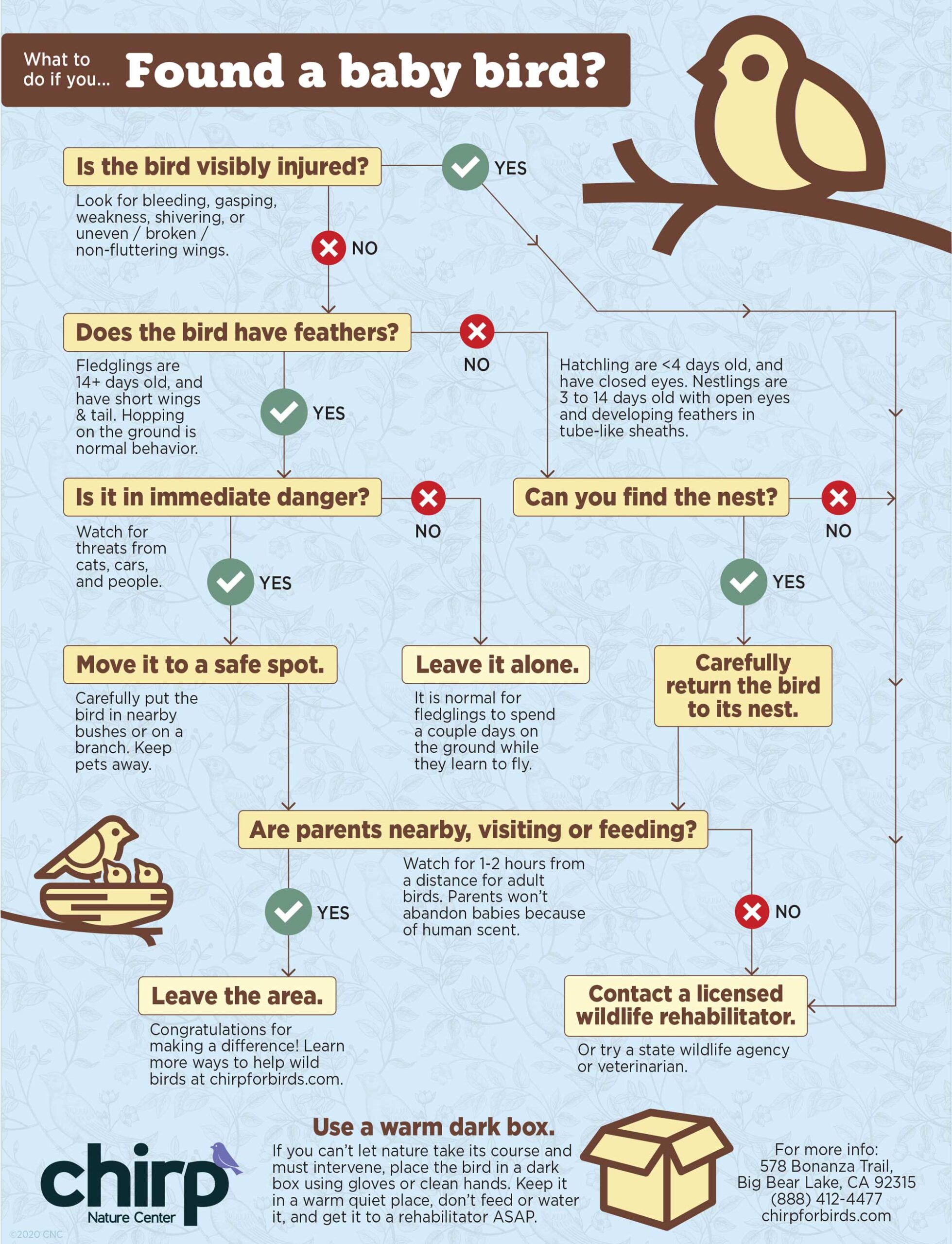
Baby Bird Care: A Comprehensive Guide to Nurturing Orphaned or Injured Nestlings
Introduction
Baby birds, also known as nestlings, are vulnerable creatures that require specialized care to survive. Whether they have fallen from their nest, been orphaned, or sustained injuries, it is crucial to provide them with the proper nourishment, warmth, and medical attention to ensure their well-being. This comprehensive guide will provide detailed instructions on how to care for baby birds, covering everything from feeding and hydration to nest building and medical considerations.
Assessing the Situation
Before attempting to care for a baby bird, it is essential to assess the situation and determine if intervention is necessary. Observe the bird from a distance to see if its parents are nearby. If the parents are present and appear to be caring for the nestling, it is best to leave it alone. However, if the bird is visibly injured, orphaned, or has been abandoned for an extended period, it will require human assistance.
Feeding and Hydration
Proper nutrition is vital for the growth and development of baby birds. The type of food they require depends on their species and age.
- Nestlings: Nestlings typically require a soft, easily digestible diet. A commercially available formula specifically designed for baby birds is the most suitable option. Mix the formula according to the manufacturer’s instructions and feed it to the bird using a syringe or a dropper.
- Fledglings: Fledglings, which are older baby birds that have started to develop feathers and are learning to fly, may require a more varied diet. In addition to formula, they can be offered small insects, mealworms, or softened fruits and vegetables.
Hydration is equally important. Offer the bird small amounts of water using a syringe or a dropper. Avoid giving the bird too much water at once, as this can lead to aspiration.
Nest Building
Baby birds need a warm and comfortable place to rest. Create a nest using a small box or basket lined with soft materials such as shredded paper, cotton balls, or fleece. Place the nest in a quiet and draft-free location.
Temperature Regulation
Baby birds are unable to regulate their own body temperature. Maintain a temperature of 90-95°F (32-35°C) for nestlings and 85-90°F (29-32°C) for fledglings. Use a heating pad or a warm water bottle wrapped in a towel to provide warmth. Monitor the bird’s temperature closely to prevent overheating or hypothermia.
Hygiene
Maintaining proper hygiene is essential to prevent infections. Clean the nest regularly and remove any soiled materials. Wash your hands thoroughly before handling the bird. If the bird has any visible wounds or discharge, seek veterinary attention promptly.
Medical Considerations
Baby birds are susceptible to various medical conditions. If you notice any unusual symptoms, such as lethargy, difficulty breathing, or diarrhea, seek veterinary attention immediately. Common medical issues in baby birds include:
- Respiratory infections: These can be caused by bacteria or viruses and may manifest as coughing, sneezing, or wheezing.
- Gastrointestinal issues: Diarrhea, constipation, and vomiting can be caused by improper diet, parasites, or infections.
- Injuries: Baby birds can sustain injuries from falls, predators, or other accidents. Broken bones, lacerations, and concussions require immediate veterinary care.
Rehabilitation and Release
Once the baby bird has recovered from any medical conditions and is strong enough to fly, it can be released back into the wild. Gradually introduce the bird to the outdoors by placing it in a sheltered area for short periods. Monitor the bird’s behavior and ensure it is able to find food and shelter before releasing it completely.
Legal Considerations
In many jurisdictions, it is illegal to possess or care for wild birds without a permit. Before attempting to care for a baby bird, check with your local wildlife authorities to determine if a permit is required.
Conclusion
Caring for baby birds is a rewarding but challenging task. By following the guidelines outlined in this comprehensive guide, you can provide these vulnerable creatures with the nourishment, warmth, and medical attention they need to thrive. Remember to assess the situation carefully, provide appropriate nutrition and hydration, create a comfortable nest, regulate their temperature, maintain hygiene, seek veterinary care when necessary, and rehabilitate and release the bird back into the wild when it is ready. With patience, dedication, and the proper knowledge, you can make a significant difference in the life of a baby bird.
